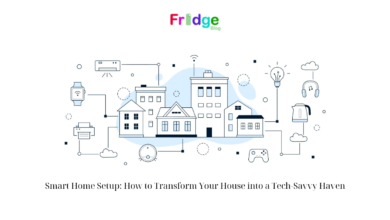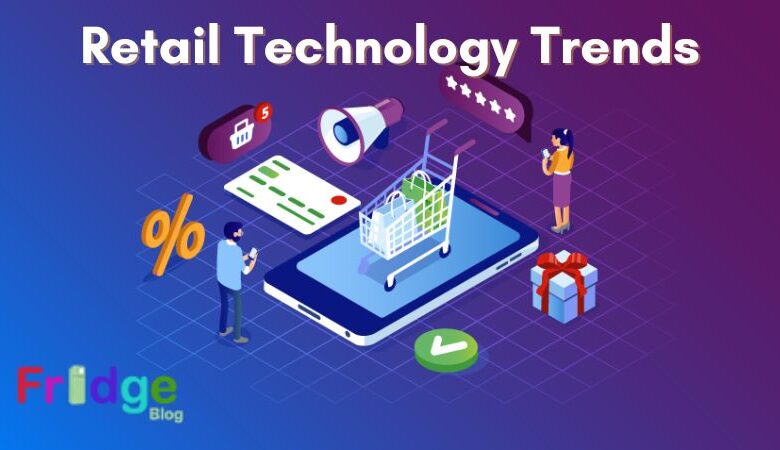
In the ever-evolving landscape of retail, staying ahead of the curve is essential for success. With consumers’ preferences and behaviors continually shifting, retailers must leverage the latest technological innovations to meet their demands effectively. From omnichannel strategies to artificial intelligence (AI) advancements, Fridgeblog, here are 11 retail technology trends that are reshaping the industry.
Post Contents
Retail Technology Trends Shaping the Future
1. Omnichannel Retailing:
Retail technology trends are shifting towards omnichannel retailing, where the focus is on providing a seamless shopping experience across various channels. Whether it’s online stores, mobile apps, social media platforms, or brick-and-mortar stores, retailers are integrating these channels to create a cohesive journey for customers. This approach ensures that consumers can interact with brands effortlessly, regardless of the platform they choose.
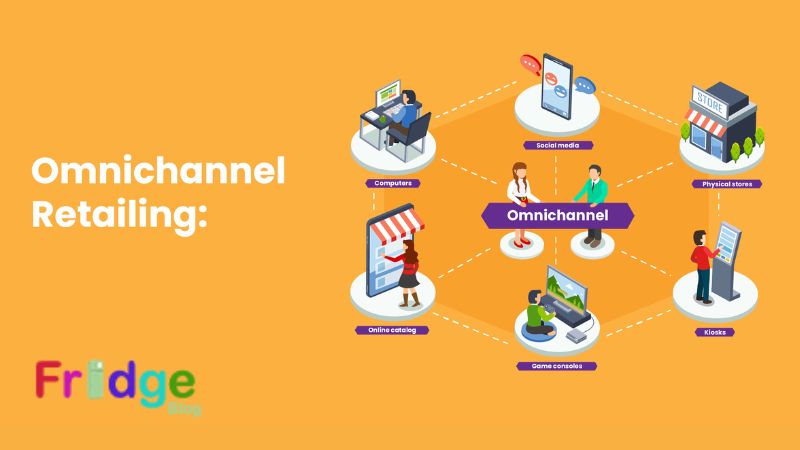
2. Artificial Intelligence (AI) and Machine Learning:
AI and machine learning technologies are revolutionizing the retail landscape by enabling personalized shopping experiences, optimizing pricing strategies, and predicting consumer behavior. Through AI-powered algorithms, retailers can analyze vast amounts of data to understand customer preferences better and deliver tailored recommendations. From chatbots providing instant customer support to dynamic pricing algorithms adjusting prices in real-time, AI is driving efficiency and enhancing the overall shopping experience.
3. Augmented Reality (AR) and Virtual Reality (VR):
AR and VR technologies are transforming the way consumers shop by providing immersive experiences. Retailers are leveraging AR and VR to allow customers to visualize products in their real-world environments before making a purchase. Whether it’s trying on virtual clothing or previewing furniture in their homes, these technologies bridge the gap between online and offline shopping, making the experience more engaging and interactive.
4. Contactless Payments and Mobile Wallets:
In response to the global pandemic and changing consumer preferences, contactless payments and mobile wallets have surged in popularity. Retailers are embracing these technologies to offer customers a safer and more convenient checkout experience. By enabling tap-to-pay and mobile wallet options, retailers are streamlining the payment process and reducing friction at the point of sale.
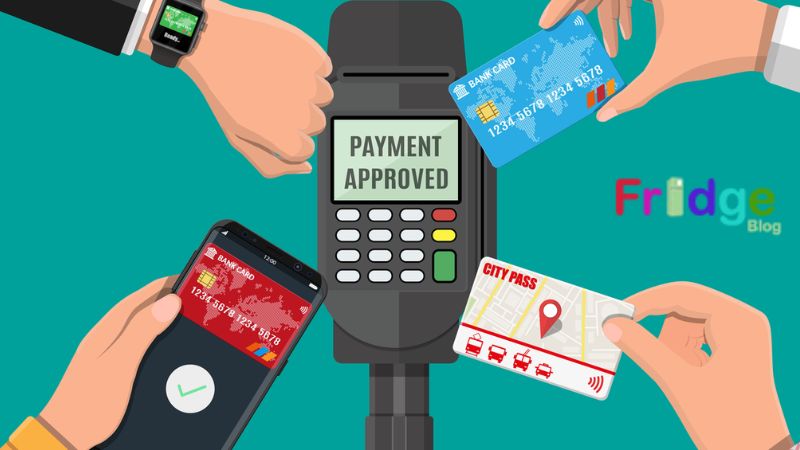
5. Internet of Things (IoT):
The Internet of Things (IoT) is revolutionizing retail operations by connecting devices and collecting valuable data insights. From smart shelves that monitor inventory levels to beacons that track customer movement in-store, IoT technologies are optimizing various aspects of retail operations. By harnessing IoT data, retailers can enhance inventory management, improve store layouts, and deliver personalized experiences to customers.
6. Robotic Process Automation (RPA):
Robotic Process Automation (RPA) is automating repetitive tasks in the retail industry, allowing retailers to improve efficiency and reduce costs. From automated inventory management systems to robotic fulfillment centers, RPA is revolutionizing the way retailers operate. By delegating routine tasks to robots, retailers can free up employees to focus on more value-added activities, such as providing personalized customer service.
7. Subscription-Based Models:
Subscription-based models are gaining traction in the retail industry, offering customers convenience and value through recurring deliveries of products and services. Whether it’s meal kits, beauty boxes, or clothing subscriptions, retailers are tapping into this trend to build long-term relationships with customers. By offering subscription services, retailers can secure a predictable revenue stream while providing consumers with a hassle-free shopping experience.
8. Sustainability and Ethical Shopping:
With consumers becoming increasingly conscious of the environmental and social impact of their purchasing decisions, sustainability and ethical shopping have become prominent retail technology trends. Retailers are adopting sustainable practices, offering eco-friendly products, and transparently communicating their ethical sourcing and production processes. By prioritizing sustainability, retailers can appeal to socially responsible consumers and differentiate themselves in the market.
9. Voice Commerce:
Voice commerce is revolutionizing the way consumers shop by enabling them to make purchases using voice commands. With the rise of smart speakers and virtual assistants, retailers are integrating voice commerce into their digital strategies to cater to this growing trend. Whether it’s reordering groceries or purchasing household essentials, voice commerce offers consumers a convenient and hands-free shopping experience.
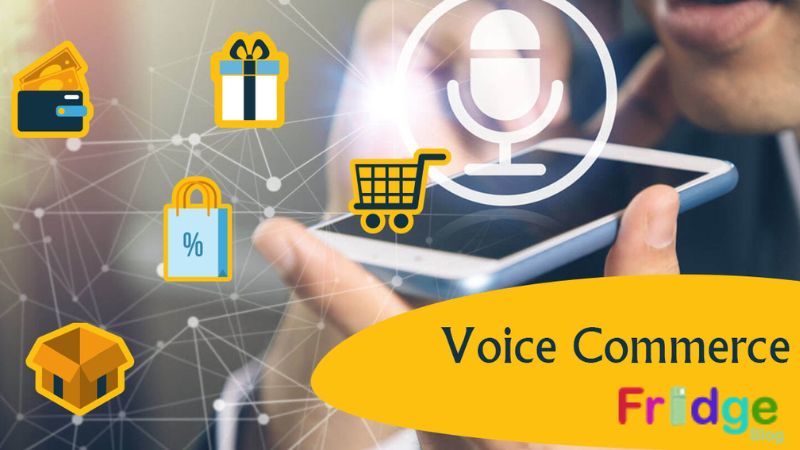
10. Data Security and Privacy:
As retailers collect and utilize vast amounts of customer data, ensuring data security and protecting consumer privacy are paramount. Compliance with regulations such as GDPR and CCPA, along with implementing robust cybersecurity measures, is essential for maintaining trust and credibility with customers. By prioritizing data security and privacy, retailers can safeguard sensitive information and build stronger relationships with their customers.
11. Continuous Innovation:
Retail technology trends are continually evolving, driven by advancements in technology and changing consumer preferences. To stay competitive in the fast-paced retail industry, retailers must embrace a culture of continuous innovation. By staying abreast of the latest technological developments and experimenting with new ideas, retailers can adapt to changing market dynamics and meet the evolving needs of their customers.
Sum Up
In conclusion, these 11 retail technology trends are reshaping the future of retail, from omnichannel strategies to AI-powered personalization. By embracing these trends, retailers can stay ahead of the curve and deliver exceptional shopping experiences to their customers. As technology continues to evolve, retailers must remain agile and innovative to thrive in the dynamic retail landscape.
Conclusion: So above is the Exploring 11 Retail Technology Trends Shaping the Future article. Hopefully with this article you can help you in life, always follow and read our good articles on the website: Refrigerator- side by side Refrigerator -Appliances Kitchen Review Blog
Related Articles
-
How to Clean a Refrigerator for Storage and Best Tips on Storing FoodFebruary 23, 2023

